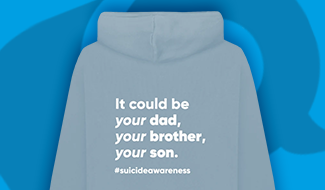If you are suffering any form of domestic abuse within or following the breakdown of a relationship, you are likely to feel extremely unsettled, frightened for your future and unsure of your options. An additional concern is very often the thought that to obtain specialist legal advice would be very expensive. The provision of legal aid in England and Wales has changed significantly in recent years but where a person or are levant child has suffered or is at risk of suffering some form of domestic abuse they may still be able to access legal aid to meet the costs of legal advice and assistance.
Eligibility for legal aid has always relied on satisfying two elements:
- the merits of the case – is there an issue that is sufficiently serious that legal aid should be granted toassist that person?and
- whether they qualify financially for legal aid.
In addition to those elements, however, The Legal Aid, Sentencing and Punishment of Offenders Act 2012 (LASPO) introduced the requirement for there to be either:
- a need for urgent protective orders (Non-molestation Order or Occupation Order), or;
- evidence of previous domestic abuse or a risk of domestic abuse from the other party to the applicant or of abuse of a child in other family law cases such as applications concerning children, divorce or separation and the financial matters arising from relationship breakdown.
There is a range of evidence (known as gateway evidence) that the Legal Aid Agency will accept in applications for legal aid. The evidence can include the fact that the other party has a criminal conviction or formal police caution for a domestic abuse offence or child abuse offence, or that there have been previous protective orders made to protect against the behaviour of the other party.
In addition, evidence can come from assessments by professionals such as social workers or from a medical professional (including GPs, health visitors and midwives) or from domestic violence support organisations or support workers. It is not possible to set out every type of gateway evidence here. For a full list of the acceptable gateway evidence one should go to the Legal Aid Agency’s website at www.gov.uk/legal-aid.
The rules and procedure for assessing financial eligibility for legal aid are quite complex and again we would refer you to the Legal Aid Agency’s website where guidance can be found on financial eligibility. Essentially, income is assessed on the basis of the total income from all sources and the total income is then reduced by deducting allowable expenses against the gross income. The allowable deductions include housing costs, a fixed allowance for dependents and children, any tax and National Insurance deductions from gross earnings, childcare costs incurred because of working or studying and any maintenance paid for children who do not live with the applicant.
If a person’s gross income is in excess of £2,657 per calendar month they are automatically ineligible for legal aid. If the disposable income after the allowable deductions are made is £733 per calendar month or less then they may qualify on the basis of income.
In addition to qualification on income, however, the applicant will also need to qualify on the basis of capital. The capital limit for qualification for legal aid is currently £8,000 although the value of properties can be disregarded in certain circumstances as can the value of any assets that might be in dispute between the parties.
A person in receipt of legal aidis under a duty to inform the Legal Aid Agency of any significant change in their financial position- it is possible that a person begins by qualifying for legal aid but then due to a change of circumstances may find that they move outside of eligibility for legal aid and legal aid will cease. Similarly, a person may not qualify financially for legal aid when they are first assessed but may then become financially eligible.
Legal aid funding is not always completely free. The Legal Aid Agency do apply a sliding scale where a full legal aid certificate has been granted which means that, depending on the income and capital a person has within the overall eligibility limits, they may be required to make a regular contribution from their income during each calendar month the certificate is in force or they may be required to make a one-off payment out of any capital they have. There are also circumstances in which a person who has received the benefit of legal aid will be required to repay to the Legal Aid Agency the fees paid to the person’s lawyers. Again, the rules and circumstances under which a person may have to repay the Legal Aid Agency are very detailed.
Broadly speaking, a person may have to make a payment under the Statutory Charge whereby a person who has recovered or preserved any money, property or costs as a result of the case is required to repay the legal costs paid on their behalf or if the legal aid certificate has been revoked. A legal aid certificate may be revoked if the Legal Aid Agency considers that the legal aid funding has been obtained fraudulently by, for example, providing false financial information.
Legal aid funding is therefore very much still available but is subject to rigorous eligibility conditions. Anyone who is dealing with the difficult circumstances of relationship breakdown who has suffered domestic abuse or who needs help to be protected from domestic abuse should always take specialist advice.
Posted on May 16, 2019














